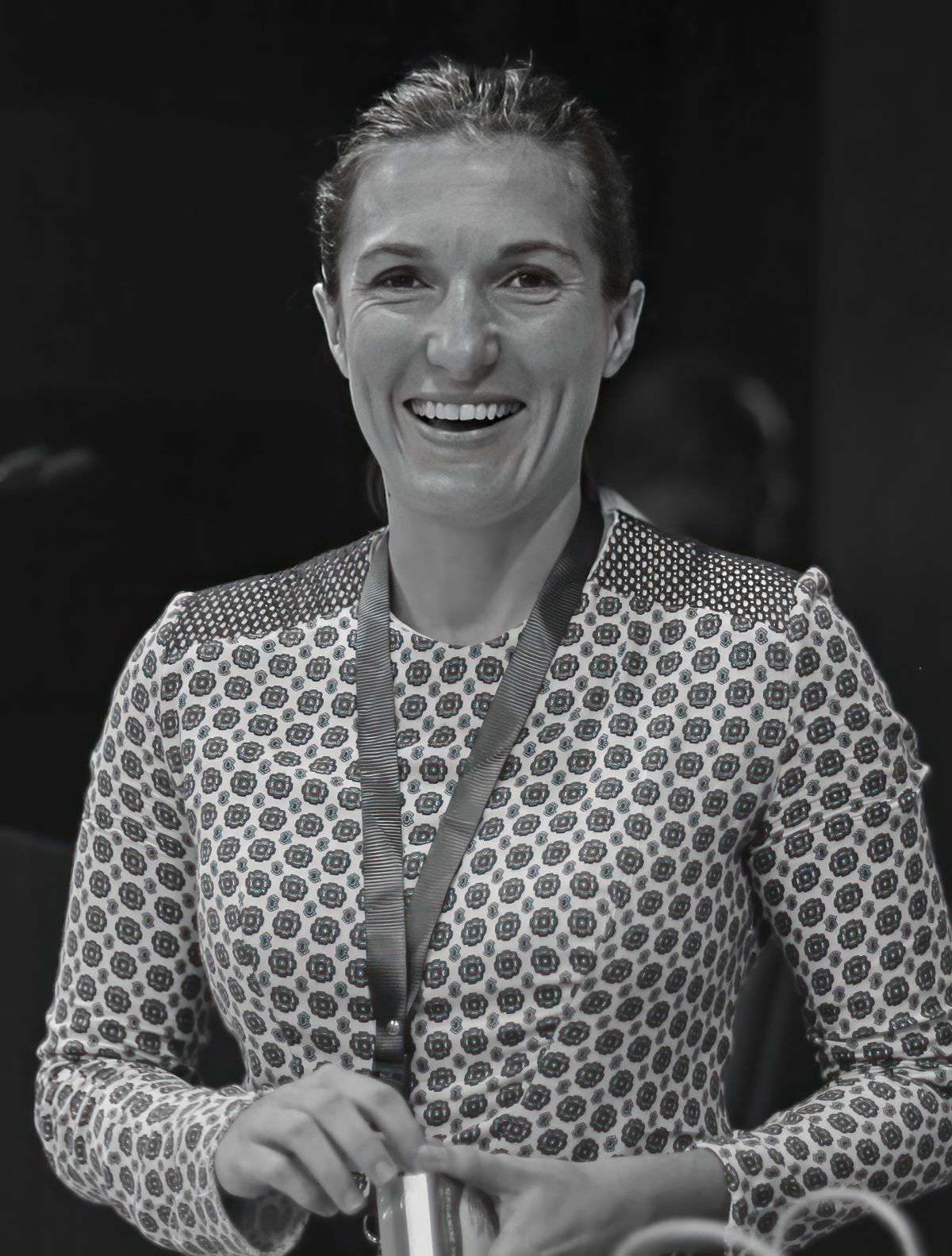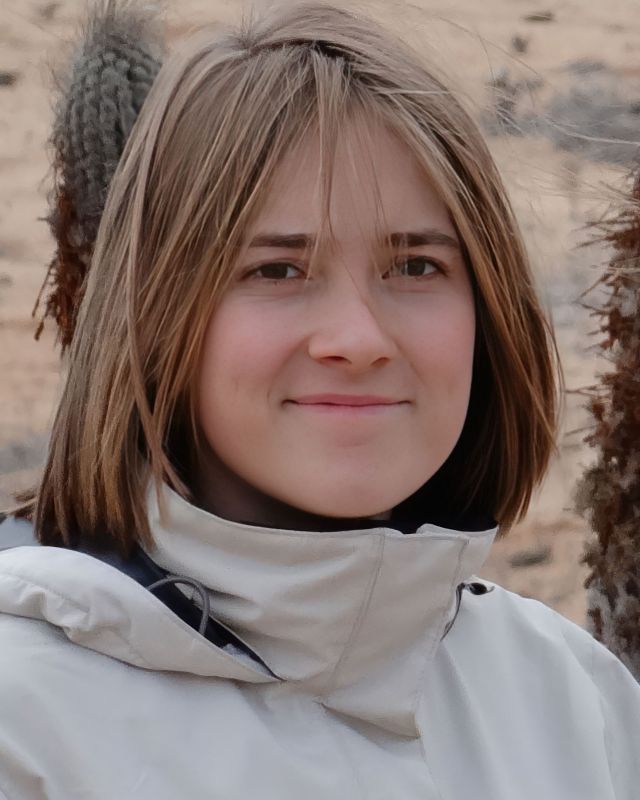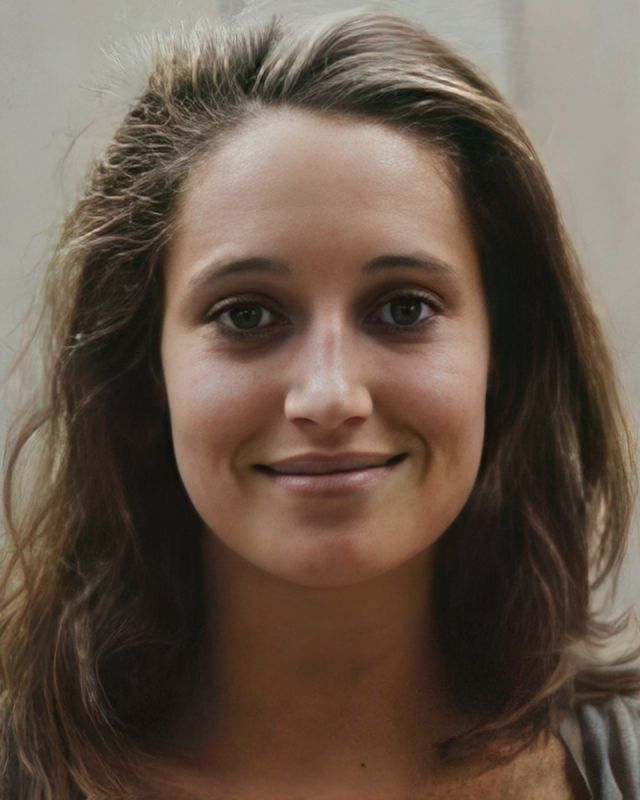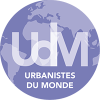Portrait

Suzanne Chatelier - GLM 2013 - A journey focused on International Affairs and Sustainable Urbanism
Published on | Alumni Portraits
Portrait created by Lise Patron
To start, could you give us a brief overview of your background before GLM and present the reasons that led you to this master’s programme?
After completing my undergraduate degree at Sciences Po, I chose the GLM master’s. It’s quite surprising because initially, I didn’t want to focus on urban policies but rather on International Affairs. However, I did my third year in Johannesburg, a city facing many urban challenges, which caught my attention. I then thought it might be interesting to study metropolises and attempt to address some of their issues even though that might seem a bit ambitious! After a year studying in English, I also felt it would be enriching to pursue a master’s programme with an international focus and taught in that language. The GLM programme was relatively young, as my cohort, that of 2013, is only the second! I embarked on the adventure and have not regretted it. It was a lot of work but also very rewarding: I truly met extraordinary people from all over.
And then? Where did you undertake your internship and what did you do there?
I completed my end-of-year internship at UNDP (United Nations Development Programme) in Bangkok, Thailand. I was part of the "Increasing Growth and Poverty Reduction" team, which worked on issues of sustainability and poverty. Simultaneously, I carried out my professional dissertation, allowing me to delve deeply into these topics while having access to UN resources. In this context, I conducted a comparative study on the "water cities" of Bangkok and Ho Chi Minh City (Vietnam), focusing on issues of urban poverty, sustainable urban development, and risk/vulnerability in the slums along the canals. After attending Olivier Borraz's course, which I found fascinating, I was particularly interested in natural hazards and aimed to understand why and how the most vulnerable always find themselves on the front lines during such disasters. Thus, I sought to examine which urban policies aimed to address these challenges. The authorities in Bangkok and Ho Chi Minh City, however, adopt different approaches. While the "Baan Mankong" programme in Thailand promotes land access for the most vulnerable communities, encouraging them to improve their immediate environment to reduce natural risks, in Ho Chi Minh City, the preferred solution is to relocate people, which raises other issues and is ultimately inefficient.
And after the Grand Oral, what did you do?
After the Grand Oral, I returned to Bangkok for another internship. In fact, after completing my Master's, I enrolled in a new Sciences Po Avenir programme, the CAM (Management Aptitude Certificate), which allowed me to extend my student status for a year: I was thus able to undertake two additional internships validated by the CAM.
I returned to Bangkok to do a 6-month internship at the Asian Disaster Preparedness Center (ADPC), which focuses on issues of natural risks in urban environments. I was in the Urban Resilience team, where I worked on projects aimed at building resilience to climate change in coastal communities in Vietnam.
Later, I went to Gabon, where I grew up, to undertake another internship at an agency that had just been created: the National Agency for Major Works (ANGT). This agency was established by the government to handle urban planning primarily. It provided me with the more technical aspect I was seeking after my previous internships, which had been more research-oriented. I acted as a liaison between two teams: planning and sustainable development. I wrote tender documents applying the ideas and concepts I had developed during my earlier experiences. As I only stayed for 6 months – a very short period – I did not have time to observe how the projects progressed.
At that time, this agency worked closely with the American engineering firm Bechtel: my internship was therefore very international. In 2014, when I undertook the internship, the economic crisis was beginning to take hold in Gabon. After my departure, many expatriates left Gabon, and Bechtel gradually disengaged from the project, although the group remains present in Gabon.
How did you find your internships?
I found my internship at the UN somewhat by chance. In fact, when I discovered it, I had already committed to an internship in the Philippines focused on risk management. I secured that one through a former GLM student who was interning there, but I really wanted to go to Bangkok. I reached out to a professor of Gender Studies, who worked 6 months in Bangkok and 6 months at Sciences Po. She was at the Asian Institute of Technology (AIT) and connected me with one of her contacts at UNDP: this is how I landed this internship. I couldn't say no to the UN and therefore declined the other internship. The UN has a policy of not compensating its interns. Consequently, it is relatively easy to secure an internship with them if you are qualified for the mission, even without a specific contact.
Regarding the second internship, I had also secured it at that time. I also found myself telling them "no" since I was going to the UN, but I asked if I could do it later, and they agreed.
Initially, I wanted to undertake the internship in Gabon during the summer, for one or two months, and I had been trying for two or three years to secure a position there: what interested me was mainly Bechtel. During a holiday in Gabon, I met engineers working at the company, who provided me with the direct contact for HR, which I did not have. I also requested a postponement for this internship, and they agreed.
What was your first job?
Following my internship at the ANGT, I found my first salaried job in Gabon at an organisation called the Gabon Oregon Centre. It is a transnational research centre focused on the environment and development, established through a partnership between Gabon and the state of Oregon in the United States in 2014. While the primary aim was to fund research projects, there was also a sustainable urbanism component, which I took charge of. One of their flagship initiatives was to implement a development plan for the largest university in Gabon (Omar Bongo), located in downtown Libreville. There were many aspects of sustainability, and it was very well executed. However, the implementation phase proved to be complicated. After two years of contract there, I left last year because the partnership was starting to falter.
And now?
I then found a job at the French Embassy in Gabon and São Tomé and Príncipe, where I am currently employed. I am not involved in urban aspects at all as I am in charge of Communications. It is a very formative job because I have discovered the internal workings of an embassy abroad: unless you have ever worked there, you never really know what it is. Communication is also very transversal, which has allowed me to touch on many areas. For me, it also shows that even if you don’t have the relevant diploma, you can still bounce back.
I will be leaving this job on 19 November 2018 to join the Atlantic Regional Directorate of AFD, which has just been created. It is a sort of International Voluntary Service (VI) which is actually called Civic Service Volunteering (VSC). I will work on establishing this directorate, supporting the director, and monitoring various issues, particularly climate change and potentially urban development.
How do you envision your future career?
For Martinique, since it is a sort of VI, it is a one-year renewable contract. I hope to stay for two years. Ideally, and depending on the VSC and opportunities at that time, I would like to join the AFD group later. I think we are a generation that struggles a bit with settling for ten years in one place. That’s why the AFD group is interesting because positions there are quite mobile.
What has the GLM master's program brought you?
First and foremost, a network. I haven’t kept in touch with my entire cohort, but it’s always interesting to see what others become, and it allows for mutual support. Sciences Po is a platform: you meet people from everywhere, which is very enriching. Secondly, it has provided me with knowledge: as the second cohort, we were somewhat "guinea pigs" and it could be a bit chaotic at times, but it was very formative. I do not regret at all having undertaken this master's programme.
My only regret might be not having pursued a more technical complementary training: ultimately, one doesn’t quite know how to define oneself at the end of the master's. I hope this experience at AFD will provide me with the knowledge I lack.
Finally, would you have any advice for current students?
I think there are all types of people in GLM. Personally, I am not someone who is "very networked", in the sense that I don't like trying to sell myself. I mainly try to take care of my small network of people who helped me at a given time, even if they no longer really assist me professionally. I think it is appreciated and rewarding to know that we are in a world where there aren’t just sharks who want your network for a moment and then completely forget you. The same goes for people from my master's: checking in regularly, not just when I need something. It takes time, but I believe it’s important!
And above all, do what you enjoy and what you're passionate about!
Fanny Coulombié - STU - from Agro Paris Tech to Sciences Po
Published on 14 December 2018
From Agro Paris Tech to Sciences Po: A Journey Focused on Sustainable Planning and Health-Favourable Urbanism Hello Fanny, to start with, could you give us a…
Noémie Fompeyrine - GLM 2015 - Project Officer at the Resilience Mission, General Secretariat of the City of Paris
Published on 30 April 2018
Can you give a brief overview of your background? What led you towards a career in the public sector? Towards the resilience mission? After obtaining my…
 English
English  Français
Français 




